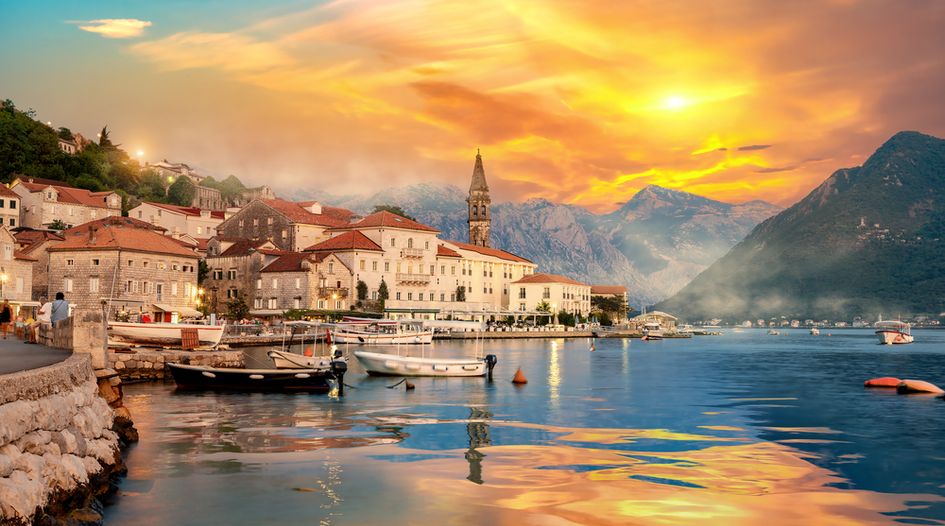Key differences between trademark regimes in Montenegro and North Macedonia

.png?VersionId=Q2r1SOlHNgaeyZtVJ7S2eDYZqPy3QW_i)
Unique features of Montenegrin trademark regulations
| Capital | Podgorica |
| Population | around 621,000 |
| GDP per capita | $8,071 |
| Main industries | Tourism, hospitality and agriculture |
After present-day Montenegro’s separation from the State Union of Serbia and Montenegro, the country entered WIPO in 2006 and founded the Institute for Intellectual Property of Montenegro on 11 May 2007 as a special body in the state’s administration system. Since 2017 the institute has functioned as an independent body within the country’s Ministry of Economy.
Montenegro is a member of several international organisations and agreements, including:
- the Patent Cooperation Treaty (PCT);
- the TRIPs agreement;
- the Nice Agreement on the International Classification of Goods and Services;
- the Madrid Agreement for International Trademark Registration; and
- the Hague Agreement on the International Registration of Industrial Designs.
The country’s trademark laws do not provide for the protection of non-traditional marks and only permit the graphical representation of a mark. Trademarks can be renewed six months from the renewal deadline at the earliest; the grace period following expiry is also six months.
Interestingly, the Montenegrin IP Office does not perform searches for a device mark – a standard service often offered during trademark availability enquiries in other countries.
In 2010 the country’s IP office established its opposition procedure and launched its Official Gazette, which featured the first published applications for opposition.
The opposition period in Montenegro lasts 90 days. In the case of an unfavourable decision, it is possible to file an administrative lawsuit before the Administrative Court of Montenegro. Conversely, a trademark annulment does not constitute an administrative procedure; instead, it is a judicial procedure, which can be filed before the Commercial Court of Montenegro in the first instance and the Appeal Court of Montenegro in the second.
Power of attorney for Montenegrin IP matters must be signed; notarisation or legalisation is not required.
Unique features of North Macedonian trademark regulations
| Capital | Skopje |
| Population | just over 2 million |
| GDP per capita | $5,888 |
| Main industries | Food processing, beverages, textiles and tobacco |
In 1991, (North) Macedonia gained its independence from Yugoslavia and became a member of the WIPO.
Today North Macedonia is a member of several international organisations and agreements, including:
- the PCT;
- the Nice Agreement on the International Classification of Goods and Services;
- the Madrid Agreement for International Trademark Registration;
- the Hague Agreement on the International Registration of Industrial Designs; and
- the European Patent Office.
The country’s trademark laws do not provide for the protection of non-traditional marks and only permit the graphical representation of a mark.
Trademarks can be renewed one year from the renewal deadline at the earliest, while the grace period is the longest of all ex-Yugoslavian republics: nine months. If a renewal is filed within the first four months of the grace period, the official fee increases by 25%; if it is filed between months four and nine, the fee increases by 100%.
North Macedonia adopted the Vienna Convention on Figurative Trademarks on 26 February 2010 and began enforcing it on 26 May of that year. All figurative trademarks registered before this date in the country are not classified according to the Vienna Classification.
To register a colour mark, applicants must pay the North Macedonian IP Office a higher fee than for a black and white mark.
Although the country’s trademark laws anticipate class headings, in practice, the office also insists that a mark’s relevant goods and services are cited precisely.
Power of attorney in all North Macedonian IP matters must be signed with the full name and position of the signatory at the authorising entity; notarisation or legalisation is not required.
This is an Insight article, written by a selected partner as part of WTR's co-published content. Read more on Insight
Copyright © Law Business ResearchCompany Number: 03281866 VAT: GB 160 7529 10

